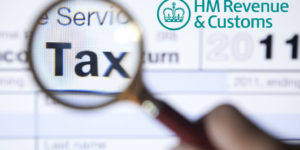A company limited by guarantee must prepare dormant accounts online if it has had no ‘significant’ accounting transactions in its financial year. Any company that satisfies this condition is considered dormant (inactive) and must file dormant accounts with Companies House.
In this post, we provide an overview of dormant accounts and explain how to file these accounts online for a private company limited by guarantee.
What are dormant accounts?
Dormant accounts are simplified annual accounts that dormant companies are required to prepare and submit to Companies House (the ‘registrar’).
A dormant company is one that is not doing business (i.e. not trading) or receiving income from other sources (e.g. investments). Both limited by guarantee and limited by shares companies can be dormant.
The official definition of ‘dormant’ for Companies House is set out in section 1169 of the Companies Act 2006, which states that “[for] the purposes of the Companies Acts a company is ‘dormant’ during any period in which it has no significant accounting transaction.”
What is a significant accounting transaction?
A significant accounting transaction is one that a company is required to enter into its accounting records, including:
- cost of raw materials, stock, equipment, and other business supplies
- income from selling goods or services
- earning interest in the company’s business bank account
- bank charges
- accountancy or legal fees
- business overheads, including rent and utilities
- directors’ salaries, staff wages, and expenses
- web hosting services
- marketing and advertising costs
However, the following transactions can be disregarded for the purposes of dormant company status:
- annual confirmation statement filing fee
- penalties for late filing of annual accounts, including dormant accounts
- the filing fee for changing a company name
- fee for the re-registration of a company
- money that the subscribers pay for their shares – this only applies to companies limited by shares
If a company can satisfy the required criteria for dormant status, it may file dormant accounts (rather than micro-entity, abridged, or full annual accounts) with Companies House.
What to include in dormant accounts
Dormant accounts for Companies House contain less information than the annual accounts submitted by trading companies.
There is no requirement to include a profit and loss statement or directors’ report, so they are much simpler to prepare. Most dormant companies can also claim audit exemption.
Unaudited dormant accounts for a company limited by guarantee should contain the following information:
- Company registration number
- Company name in full, including ‘Limited’ or ‘Ltd’ at the end
- Date of the balance sheet
- Balance sheet, containing statements above the director’s name to the effect that ‘the company was dormant throughout the accounting period’
- Any previous year’s figures for comparison, where applicable
- Notes to the balance sheet
Whilst a dormant balance sheet is sufficient for Companies House, the company may still have an obligation to prepare full (‘statutory’) annual accounts for its members (guarantors).
How to file dormant company accounts
You can file dormant accounts for a limited by guarantee company electronically using Companies House WebFiling service.
This online service has built-in checks and includes all of the required statements, which minimise the occurrence of common mistakes and omissions.
It is not possible to file dormant accounts by post using Companies House form AA02. This option is only available to companies limited by shares. However, paper filing takes much longer anyway – and has higher incidences of rejection due to errors.
To file dormant accounts online, you will need:
- the email address and password that you used to sign up for Companies House WebFiling service
- the authentication code that Companies House sent to your registered office address
Alternatively, you can use 1st Formations’ Dormant Company Accounts Service, which includes:
- Preparation and electronic filing of dormant company accounts in accordance with Companies House requirements
- Fast turnaround – 3 working days (Standard Service) or 1 working day (Express Service)
- Confirmation of acceptance of accounts by Companies House
The cost of our standard Dormant Company Accounts Service is just £49.99 +VAT.
Filing deadline
The filing deadline for submitting dormant accounts to Companies House is either:
- 21 months after the date of incorporation, if you are filing accounts for the first time; or
- 9 months after the company’s accounting reference date (the end of the company’s financial year)
These deadlines are the same for all companies, regardless of whether they are dormant or trading, limited by guarantee or limited by shares. The same late filing penalties also apply to dormant accounts.
Are dormant companies exempt from audit?
If a limited by guarantee company has been dormant from the date of incorporation, it can claim audit exemption for that financial year.
Furthermore, a company is exempt from audit if it has been dormant since its last accounting reference date and satisfies the following conditions:
- it is entitled to prepare individual accounts in accordance with the small companies regime
- it is not required to prepare group accounts
- it qualifies as a ‘small company’ in relation to that financial year, or would have qualified as small if it were not a public company (PLC) or a member of an ineligible group
In certain circumstances, a dormant company that is also a subsidiary can claim exemption from preparing annual accounts, sending accounts to Companies House, or both.
Is my dormant company ‘small’?
In accordance with section 480 of the Companies Act 2006, small dormant companies may claim exemption from audit.
Your limited by guarantee company will qualify as small if it satisfied at least two of the following conditions prior to becoming dormant:
- a turnover of £15 million or less
- £7.5 million or less on its balance sheet
- 50 employees or less
In addition to sending dormant accounts to Companies House and being exempt from audit, a small company can:
- choose whether or not to send a copy of the profit and loss statement and director’s report to Companies House
- send abridged accounts (rather than full accounts) to Companies House
Audit exemption statements
If your dormant company is exempt from audit, the following statements will appear above the director’s name in the dormant accounts:
- For the year ending [dd/mm/yyyy], the company was entitled to exemption from audit under section 480 of the Companies Act 2006 relating to dormant companies
- The members have not required the company to obtain an audit of its accounts for the year in question in accordance with section 476
- The directors acknowledge their responsibilities for complying with the requirements of the Act with respect to accounting records and the preparation of accounts
If the company also qualifies as small, the following statement will show on the balance sheet:
“These accounts have been prepared in accordance with the provisions applicable to companies subject to the small companies regime.”
Dormant companies and HMRC
Normally, dormant companies do not have to submit accounts to HMRC. The reason is that dormant companies are not liable to Corporation Tax and do not file Company Tax Returns with HMRC.
However, if a company becomes dormant part-way through its financial year, or has any significant transactions that forfeit its dormant status, the director(s) must prepare a Company Tax Return and full annual accounts for HMRC.
Do I still need to file a confirmation statement?
Regardless of whether your company is dormant from incorporation, or stops trading after a period of activity, you must continue to prepare a confirmation statement for Companies House each year.
Additionally, you must:
- keep the company’s statutory registers up to date
- make these registers available for inspection at the registered office or SAIL address
- report certain changes to Companies House – e.g. a change of company name, registered office address, guarantors’ details, information about people with significant control (PSCs)
Whilst your company may be dormant, you are still duty-bound as a director to ensure that all necessary details are kept up to date in your own statutory registers and the public register at Companies House.
If a dormant company starts trading
If a dormant company starts trading or forfeits its dormant status in some way, the director(s) will notify Companies House by submitting non-dormant accounts by the next filing deadline.
There is no need to tell Companies House prior to this date that the company has started doing business, and/or is no longer dormant for that financial year.
- An introduction to Corporation Tax
- Do I need to file a Company Tax Return?
- Pros and cons of voluntary VAT registration
Within three months of starting to trade, the company must also register for Corporation Tax. After the end of the Corporation Tax accounting period, the company will be required to prepare a Company Tax Return and full annual accounts for HMRC.
Depending on the company’s turnover or activities, VAT registration may also be necessary. Some businesses choose to register for VAT voluntarily, even if their turnover is below the registration threshold (currently £90,000).
If you decide to close a dormant company
If you no longer need your dormant company limited by guarantee, you can apply to Companies House to have it struck off the register and dissolved. Upon doing so, the company will cease to exist.
Thanks for reading
If you have any questions about this topic or would like to find out more about our Dormant Company Accounts Service, please leave a comment below or get in touch with our company formation team.
Please note that the information provided in this article is for general informational purposes only and does not constitute legal, tax, or professional advice. While our aim is that the content is accurate and up to date, it should not be relied upon as a substitute for tailored advice from qualified professionals. We strongly recommend that you seek independent legal and tax advice specific to your circumstances before acting on any information contained in this article. We accept no responsibility or liability for any loss or damage that may result from your reliance on the information provided in this article. Use of the information contained in this article is entirely at your own risk.












Join The Discussion
Comments (4)
Great to know that I can claim dormant exemption. Thanks.
We’re pleased you found this article useful.
Kind regards,
The 1st Formations Team
Thanks! Can you file my Dormant Accounts for me?
Hi Scarlett,
Yes we can – we offer a Dormany Company Accounts Service. You can find more information and purchase the service here: https://www.1stformations.co.uk/dormant-company-accounts/
Kind regards,
The 1st Formations Team